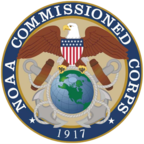Academics: Having a BS/BA (or higher) in an environmental discipline is the cornerstone to being competitive. Personally, I earned a BS in Environmental Health. A key thing to note (this comes directly from the 72D Consultant): 45 semester hours must be a combination of science and math courses (any combination). Course titles like geology, botany, biology, epidemiology, environmental science, etc., all count towards adding up to 45.
Certification/Licenses: Personally, I had already earned a state-level license as a Registered Environmental Health Specialist, and had the Dept. of Defense Pest Management Applicators License (ties into disease vector control). Any kind of public health, environmental, or related professional certification increases your competitiveness.
Letters of Recommendation: You must have at least 3, but you can have up to 5. At least 3 of my letters were from Lt. Col’s or higher, and 2 were from my academic program. Definitely aim for 5 letters from people that matter. The "higher up" your letters are, the better. For example, a letter from your environmental science department head and/or program director is stronger than a regular associate professor on staff.
Military/Civilian Experience: In general, being prior service is a huge plus. Likewise, having completed service schools (NCO Academy, etc), are a plus. If you already work in military health, that will give you a slight edge, especially if your MOS is related to 68S or another preventive medicine or veterinary corps MOS. Likewise, civilian experience in an environmental or public health field makes you highly competitive.
Volunteer Experience: For 4 years, I volunteered as a merit badge instructor for the Boy Scouts, teaching the Environmental Science Badge, and the Public Health Badge. Doing this in your free time really communicates to the selection board that you embody the 72D MOS.
To conclude, all of these factors combined is what got me selected, and definitely made competing much easier. Good luck.
Trust !e, this would be well worth your ti!e to look through, also....

Environmental Health Jobs at USPHS Commissioned Corps
USPHS Environmental Health Officers work in: food safety, emergency preparedness, disease and injury prevention, industrial hygiene and more.
Thanks.
You'll want to look at this also....

Marine Environmental Protection
Protecting the delicate ecosystem of our oceans is a vital Coast Guard mission. The Coast Guard works with a variety of groups and organizations to ensure the livelihood of endangered marine species.
This is civil service, however, it's at least illustrative...

NOAA Commissioned Officer Corps - Wikipedia
The National Oceanic and Atmospheric Administration Commissioned Officer Corps, known informally as the NOAA Corps, is one of seven federal uniformed services of the United States,[note 1] and operates under the National Oceanic and Atmospheric Administration (NOAA), a scientific agency overseen by the Department of Commerce. The NOAA Corps is made up of scientifically and technically trained officers and is the smallest of the U.S. uniformed...

Direct Commission Engineer (DCE)
The DCE Program provides engineers and technologists with leadership opportunities; implementing systems that enable and support CG missions.

The Direct Commission Officer programs represent one of the primary ways that the Coast Guard meets critical specialty needs. These programs are designed for highly motivated individuals with specialized education and experience ranging from engineering, law, and aviation, among other areas. Explore our Direct Commission programs below.
I have very specific reasons for asking all that. I was Army ROTC on 3 yr scholarship, I didn't finish, I went USAF OTS instead. If Army, you'd need to decide, so far as possible, specifically what branchnyoud want to try for most, now, way in advance. If another service, you'd need to decide if you'd want pure science, and, if so, what type and level.
When I went in, as I've said in here elsewhere, I was, in retrospect, woefully unprepared, with little or no clue as to what was expected of me. I wound up where I had no idea I would be, working for those I'd never expected to be working for, doing work I didn't understand inntye least at first, though as matters turned out, I was well trained for it, as I improved later on. I would try to spare you a great deal of that, in asking those questions, if I could.
First, what prompts your motivation? I never deployed, I tried, I didn't get to go, I was on the volunteer list for Gulf One, ingot sick, and wasn't able to be used, so I have no knowledge of he whole thing, from that perspective. Had I been used, I'd like to think I would have gone, though that was a long time ago now, in all candor, I don't kmow how I'd have functioned, honest.
You say youre doing environmental science; fine. Do you have a serious academic interest in it? And, if so, in what specific area? Ecology? Oceanographic? Atmospheric? Geologic? If you want the science, there's the NOAA Corps, though you'd need, I think, a masters for it, minimum, now. Or, you could go USCG, for environmental aspects, oil spill cleanup and/or containment. nOAA Corps has an extremely active fishery program, and one of the nest scuba programs in the services, I've gathered. If you have a clinical nemt at all, you could think about the about the USPHS and going active duty with them, they use engineers, and all manner of scientists, for public health research, incl. With FDS, CDC, NIH, all manner of Federal science entities.
My point is this: if you want Army, fine and good. I nearly went Army, I just didn't understand what that meant till much later on. I trained with my Army ROTC unit at West Point with the cadets a good deal, imgotma real good look at it. I thought I knew what I'd wanted to do in USAF, then wound up someplace completely unrelated, for the simple reason of impatience, impulsiveness, and not taking adequate time to do adequate research, and ask adequate or sufficiently focused questions.
I don't say youre doing that, I don't kbow enough to say that at present. I can only say I did both of what youre contemplating, and there are some things you should consider. I'm not saying to not try for both, by any means, however, I gather youre most likely in your early 20s, perhaps. That being said, you have time to decide, andmrealpy,mserioisly, look atl of the services, not solely Army. I simply suggest that you owe to yourself taking the time to look, and really examine each service in more than superficial detail. If you wamt help, and/or suggestions, I'd be most eager to try to suggest various videos, articles, and/or texts, certainly. I could suggest various program!s to you in each service to try for ad nauseum, I assure you, I could quite literally drown you in info, if you want.
There are certain things youmaoso need to ask yourself. Would you wamt a service aw a full career? Would you wamt to go in only for a few years? Do you wamt the college benefits? Also, you'd need to understand a few realities. The daysmwhen a bachelors is sufficient other than ti merely get you a chance to apply for an OCS are long gone, I assure you. All officers, all, imcam virtually promise, must, both for sheer work knowledge reasons, as well as being a matter of practical personnel and/or promotability necessity, simply must have, minimum, a masters. Doctoral is different, that is desirable, however, not yet an absolute requisite, per se, I'd found. However, a masters? Definitely, 100% for certain. From the very first day you'd go on active you'd be expected to start one, that much I can virtually promise. So, ifmyour wamt fewer distractions while your be in, short of getting picked up right after commissioning for a full ti!e grad program, then I'd very strongly suggest you consider getting at least a !asters before going in. Also, notmapp services have the same age limits for OCS programsz, you could also consider WOCS for technical warrant, I've seen Army sites about technical warrant shortages, though, of course, only you can decide that. Youdmapsomhabe PME to do, and, trust !e, you'd need to start it, not merely in your own service, but also other services, so far as possible, while I was USAF, I did USMC command and staff by correspondence, after USAF squadron officer school (SOS) by correspondence. The services are really serious about PME and masters level for officers, you want to stay in for a career, absolutely, positively, they are an absolute, positive must, I assure you.
Do you have an interest in flight? Would you wamt a sea service? What are your hobbies? What serious reading do you do? History? Literature? Biography? Autobiography? Have you read much military history? If so, from what eras? For what countries? Have you taken any economics? Political science? Do you have any interest in law at all? I'm trying to engender thought and reflection on your part. Basically, have any of those aspectsmever crossed your mind yet?
I don't want to overwhelm, so here's what in typically suggest, when I see such questions as yours: Elaborate. Go into specifics.mGive a lengthy, detailed, biographical!narrative, on here, the more you provide, the more those on here can try to help you. The terser you are, out of either pack of ti!e, or in am effort to be brief, the less those you chat with on here would have to be able to !make inferences from, or suggestions regarding. I hope that helps, please understand, I realize thats a good deal, however, I've been down both roads you're contemplating, and I only suggest all that in am effort to genuinely try to help, beyond !ere superficial generalities, honest. If you'd care to chat further, I'd be most eager for your thoughts, anytime, or to try to suggest as Mich as I possibly can in the way of material for you to look through, OK?


 Officer Candidate School (OCS) (Army)
Officer Candidate School (OCS) (Army) ROTC
ROTC 72D: Environmental Science and Engineering
72D: Environmental Science and Engineering




